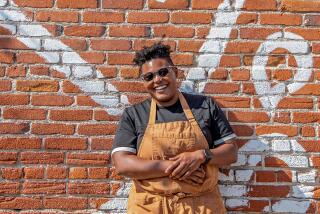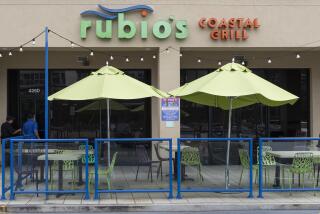A beloved Beirut restaurant survived civil war. Now it must endure COVID-19
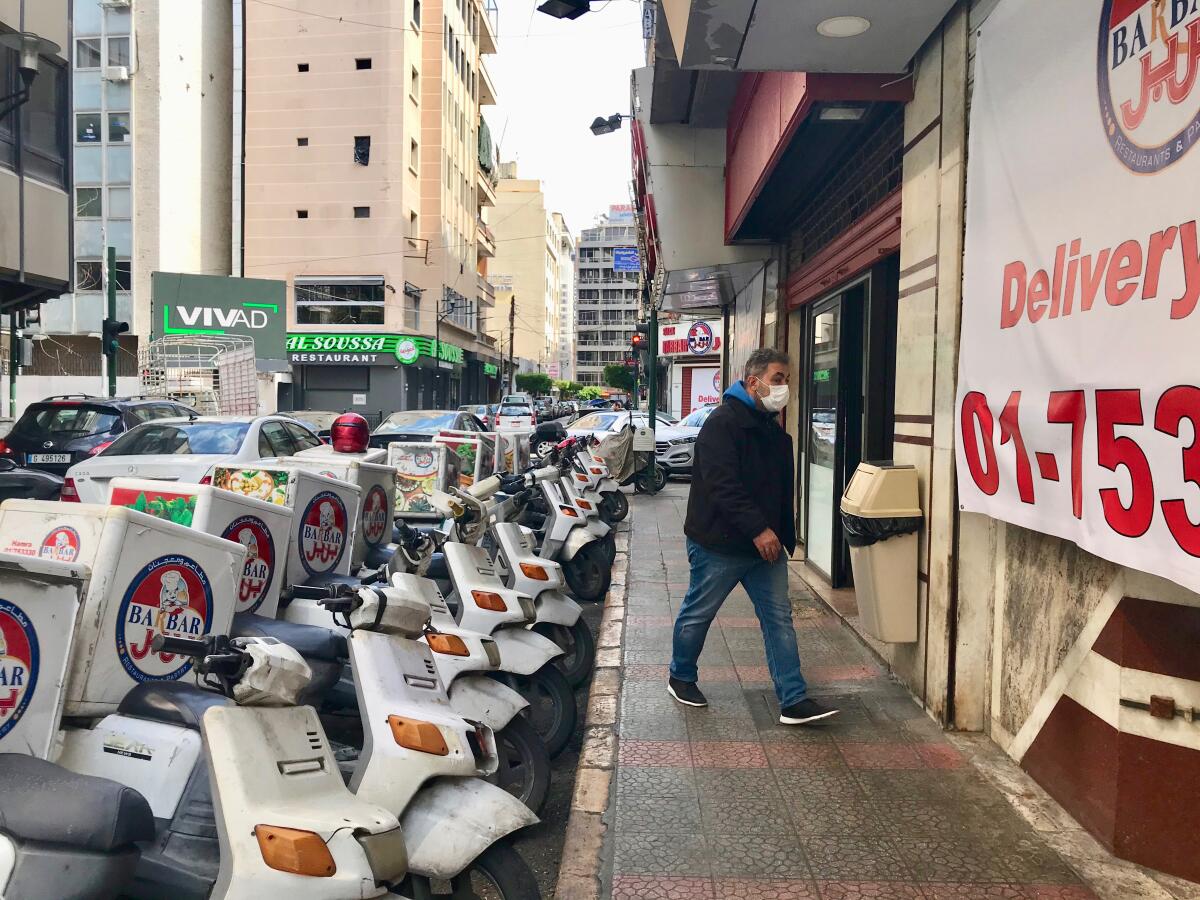
BEIRUT — It was always rush hour at Barbar. The restaurant sprawls over several buildings in Beirut’s Hamra district, where you could glimpse white-clad workers at all hours slicing shawarma meat, frying up falafel or prepping smoothies with Carmen Miranda-like crowns of fruit.
Barbar never opened its doors because they were perpetually open. Now they’re closed. And a vital part of this city’s life has been forced to confront a new reality.
It’s perhaps a measure of the coronavirus threat that Barbar, famous for serving customers with no interruption for more than 40 years through some of Lebanon’s toughest times, including civil war and assassinations, must now turn customers away. It’s part of a wider evisceration of Lebanon’s famed restaurant industry, which is facing losses estimated at more than $200 million a month nationwide, according to the country’s Syndicate of Restaurants, Cafes, Clubs and Patisseries.
Fears of the virus inundating Lebanon’s enfeebled medical sector pushed authorities here to enforce an almost total lockdown. Dine-in and take-out services for food establishments were ordered suspended, forcing more than 95% of restaurants to totally cease operations, says the head syndicate head Tony Ramy. It’s likely that many will never reopen.
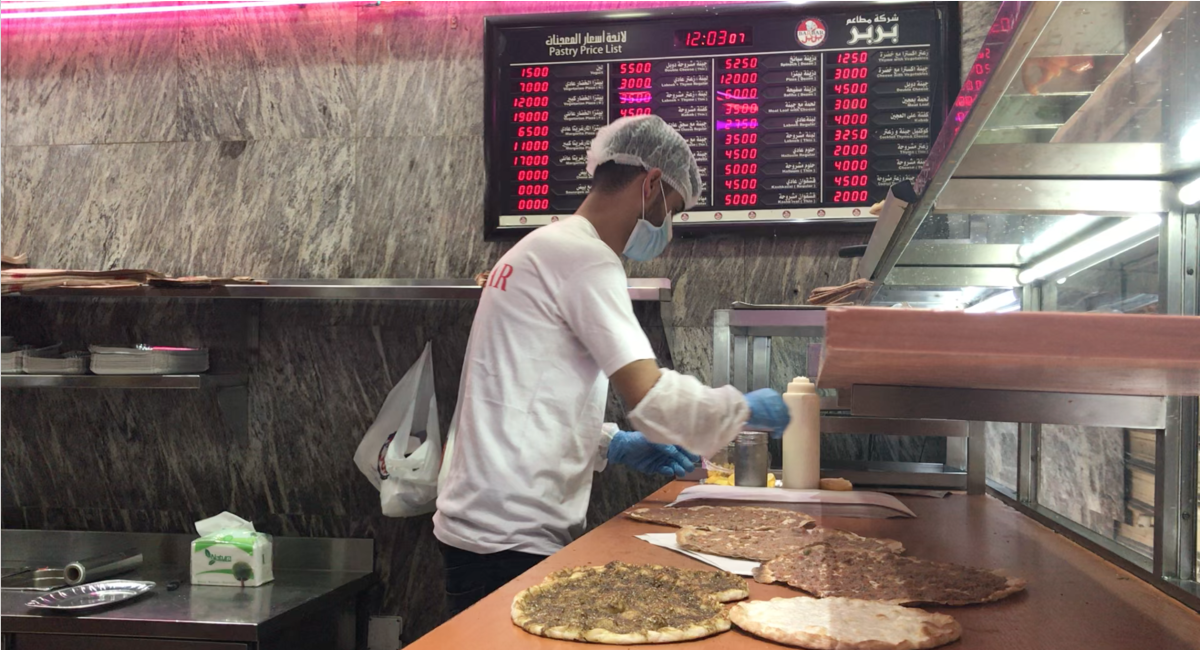
But Barbar, in diminished ways, has found a way to survive. It still retains a delivery option in noncurfew hours, with its swarm of scruffy white scooters emblazoned with the restaurant’s mascot, a pudgy, mustachoied chef in a toque carrying a platter.
“Technically,” says Ali Ghaziri, 38, who co-owns and operates Barbar with his brother, 39-year-old Shadi, “we still haven’t closed. But it’s the first time we’re not open 24/7.”
But the lockdown meant it had to roll down its shutters.
“We’ve never had to do that; they were so dirty,” Ghaziri says, chuckling.
“We immediately repainted them.”
Other adjustments in the face of the COVID-19 were more drastic.
“We wanted to adhere to the health regulations, so we hired consultants and medical professionals, and followed the advice of the World Health Organization,” Ghaziri says.
The first order of business was downsizing: the six storefronts in the Hamra neighborhood and Barbar’s other branch were all shuttered. The different kitchens were transplanted into one centralized unit in the main location. Everyone — food preparation staff, deliverymen, managers — maintains a distance of at least six feet from one other, with a ready supply of gloves and masks always in use. And the restaurant’s staff operates at 25% strength.
“We had to furlough many people,” Ghaziri says with a hint of resignation. “But we paid them their salaries and an advance on their future salary as well. We’re also providing food for employees’ families if they need it.”
Ghaziri walked through what is now the restaurant’s main kitchen. He pointed out the vertical spits laden with marinated chicken and meat for shawarma and the “snack” section, where a worker was constructing one of Barbar’s signature hot sandwiches. To the side was a vat of oil, flames at the ready for the moment an order for falafel came in.
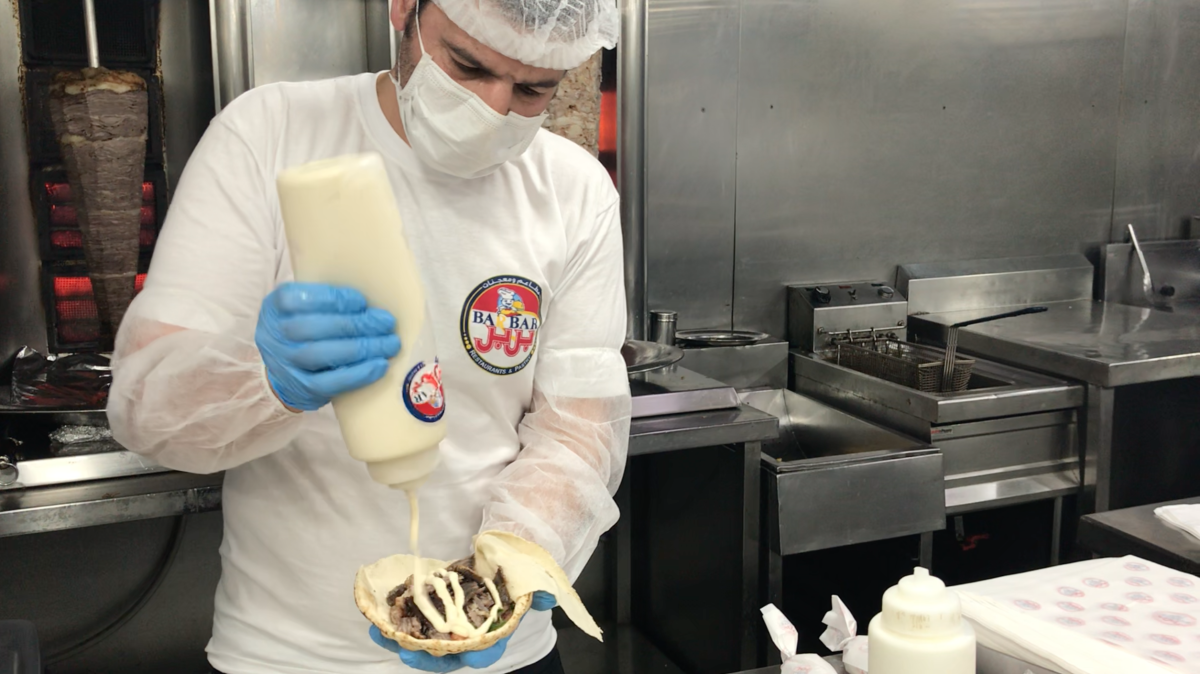
All the items on Barbar’s vast menu are still available, including the elaborate daily specials, the grilled meat offerings and the brick-oven bakery, which serves up a variety of manousheh, a sort of Lebanese flatbread pizza.
“I’m worried people will think I have a fever from the oven,” jokes Kamal, one of Barbar’s remaining bakers, as he slides in a plank loaded with neat circles of dough topped with cheese, meat and za’atar by the fire.
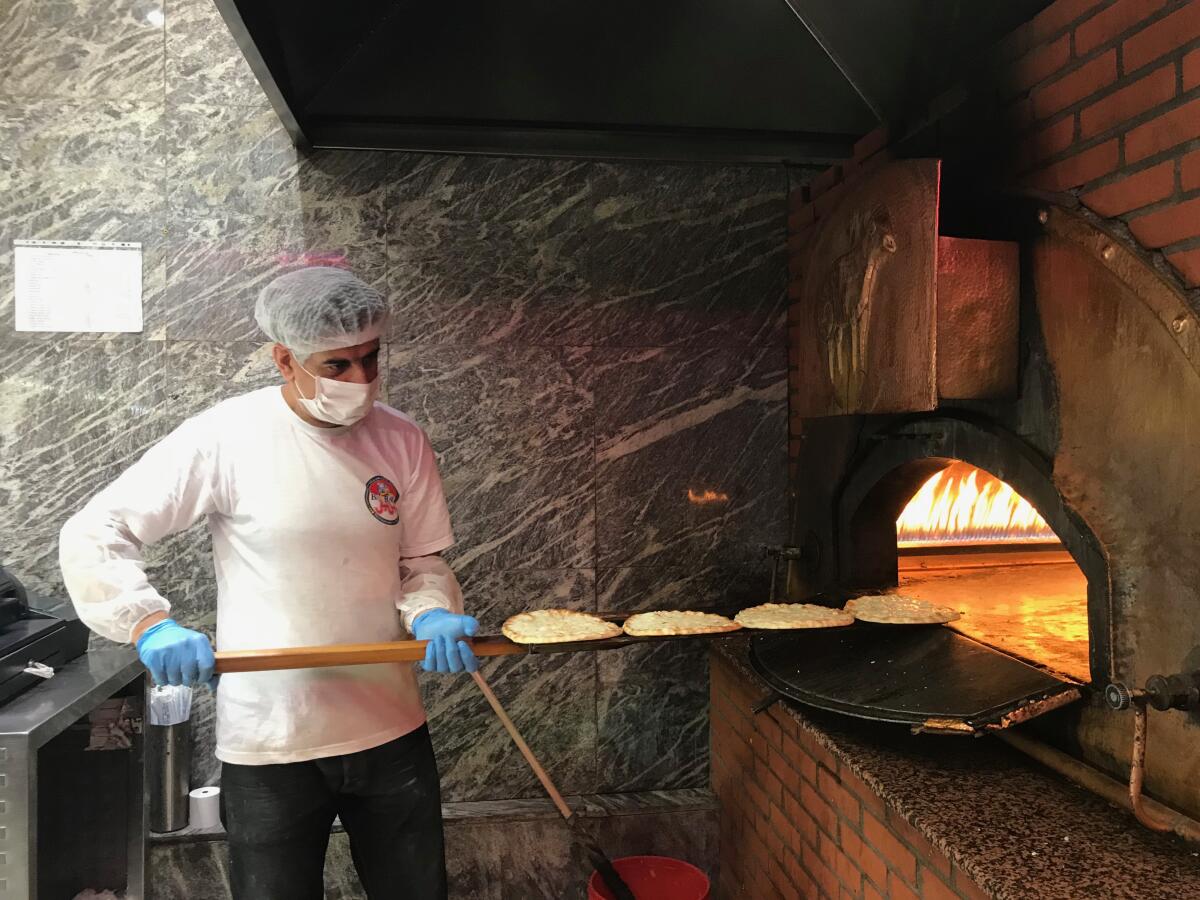
So it’s still recognizably Barbar — but one devoid of the hundreds of patrons chowing down in the proletarian but practical dining room, or bleary-eyed party people blotting out the booze with a sidewalk shawarma on the go. Even the kitchen, normally abuzz with the esprit de corps of a high-stress but high-quality food establishment, seems subdued.
To understand the coronavirus as cataclysm for businesses here, you have to think back to what Barbar has already endured: how the Ghaziris’ father, 67-year-old Mohammad, gave up a life at sea to open up a modest manousheh joint in 1979, four years into Lebanon’s devastating civil war; how he piled sandbags in front of the restaurant as protection from errant mortar shells; how sectarian militiamen would fight Palestinian guerrillas down the street before both sides would take a lunch break at Barbar.
With the civil war’s end, Barbar became famous, its name linked to the notion of what people these days call “resilience,” decades before the term got to be in vogue.
Other violent episodes followed: the assassination of the Lebanese Prime Minister Rafiq Hariri in 2005, the July 2006 war between the Shiite armed faction and political group Hezbollah and Israel, the fracas pitting rival parties in 2008, and the conflict raging in neighboring Syria since 2011.
More recent shudders, including a dollar crisis that began in September and months-long demonstrations that brought a million people — almost a quarter of Lebanon’s population — into the streets had seen the closure of some 785 establishments, according to the restaurant syndicate’s figures.
Throughout them all, Barbar remained. But the current crisis is different; the enemy more mercurial in its invisibility.
“War is easier. You can deal with militias,” Shadi says.
“Yeah, we were friends with all the commanders,” Ghaziri replies. “You can’t be friends with corona.”
Sales, he says, had taken a 15%-20% hit between September and February.
“Since the closures, it’s 85% lower.”
Still, the Ghaziri brothers, who took over from their father five years ago, insist they’re going nowhere.
“Our work is down, but it’s continuing. The Lebanese person adapts … we always find a way to do this,” Ghaziri says before turning to an employee to ask about an order.
That may seem a hokey sentiment, but in a time of lockdown it was a lifeline for a hungry reporter one Thursday evening, when other delivery services had shut down for the night and the fridge seemed dangerously bare.
Could it be that Barbar was still delivering?
“We’re open,” came Ghaziri’s reply. Dinner was served.
More to Read
Sign up for Essential California
The most important California stories and recommendations in your inbox every morning.
You may occasionally receive promotional content from the Los Angeles Times.

